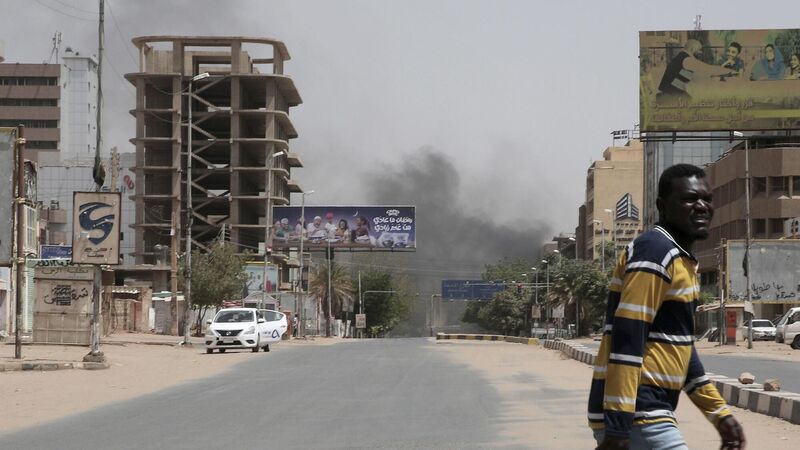50 Irish citizens evacuated from Sudan by Spanish and French governments

Smoke is seen rising from a neighborhood in Khartoum, Sudan. Picture: AP Photo/Marwan Ali
Up to 50 Irish citizens have been evacuated from Sudan with the assistance of the Spanish and French governments, the Foreign Affairs Minister has confirmed.
Micheál Martin said there were about 150 Irish nationals in the country as of Sunday morning, and so far, 50 had been evacuated to Djibouti, where a consular team from the Department of Foreign Affairs has been on the ground since yesterday.










